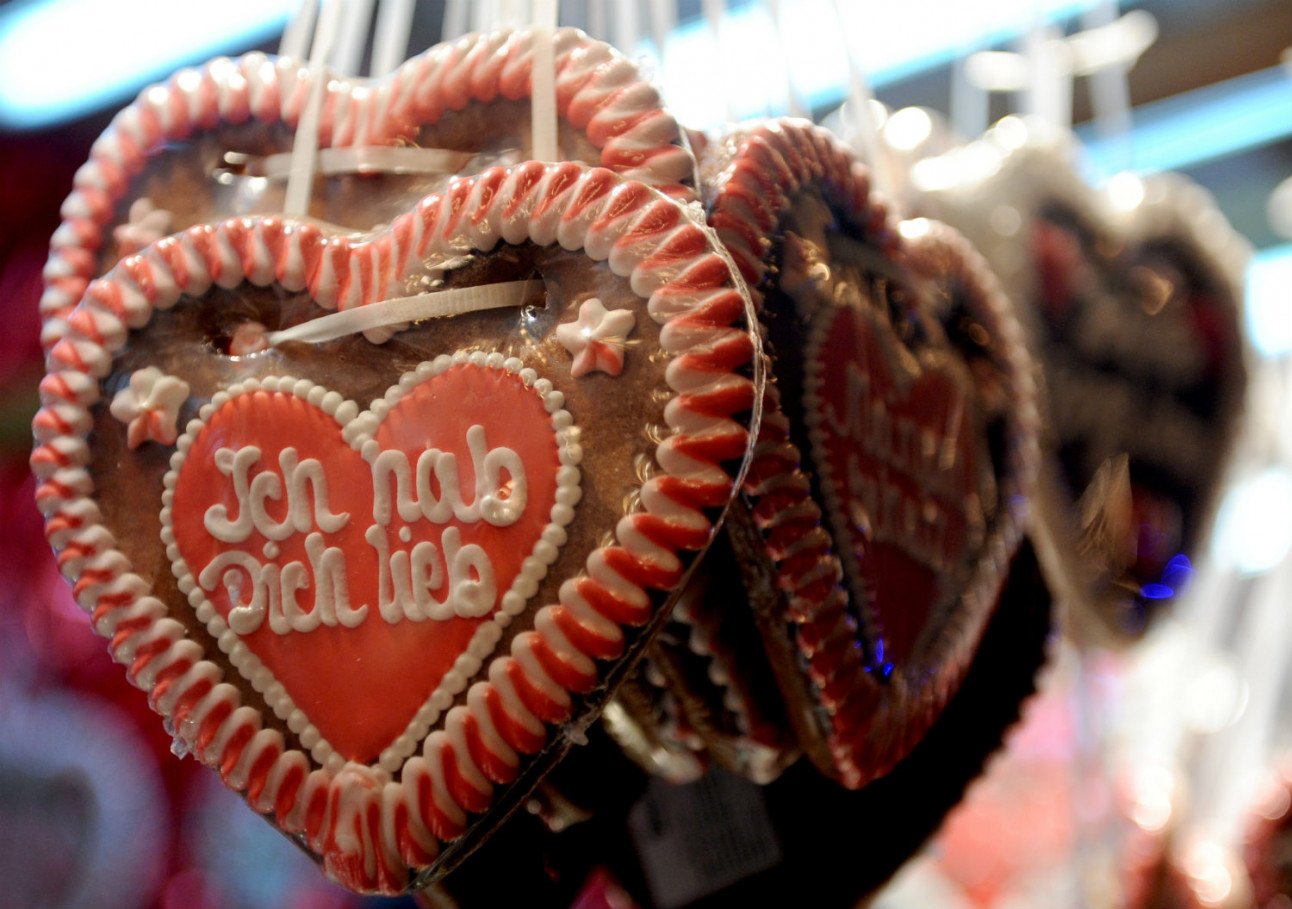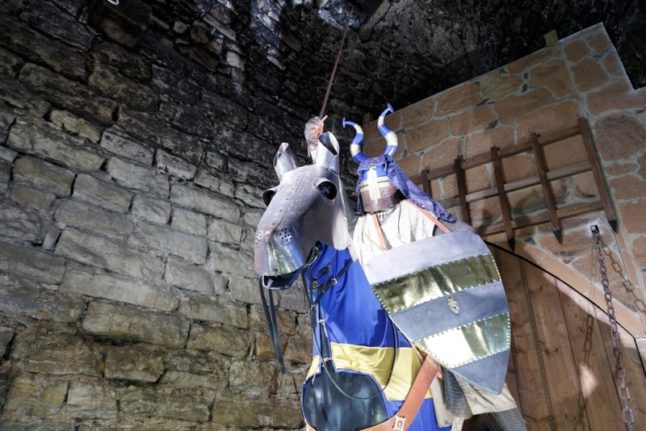There are a lot of people looking for love in the Bundesrepublik. Dating website Parship estimated last year that there are about 16.8 million single people in Germany between the ages of 18 and 65, with 82 percent searching for a partner.
Whether it’s through online dating apps or meeting people IRL (in real life), it can be tricky navigating the world of romance especially for internationals who’ve moved to Germany from another country.
READ ALSO: What’s the advice for sex and dating in Germany during the coronavirus crisis?
Flirting is non-existent
Foreign readers in Germany last year told us they’ve experienced several culture shocks.
On Facebook Marlene Barba said: “I’d say that it’s really hard (to date), even for Germans with Germans. In Mexico you can date asap or through friends.”
In a previous Local article, Canadian expat and blogger Laurel Robbins in Munich said: “German men don’t have the best idea how to flirt.”
That was a sentiment shared by many readers, but not all.
“I’d say people do not flirt in an obvious way here but it’s difficult to have friends of the opposite sex, so you will never know if that guy that you have been talking to is into you or not,” said Barba.
READ ALSO: It’s not impossible: The ups and downs of dating in Germany
In many countries chatting people up in a bar or a club is not an uncommon thing. Yet you won’t find that same culture in Germany where people tend to be more reserved.
Mirkka Rissa in Munich said: “At least in München everyone waits – men and woman – for the other one to make the first move, which results in no contact whatsoever. Flirting is non-existent.”
However Rissa pointed out that British men are “even worse flirts” because they’re so polite.
 Photo: DPA
Photo: DPA
Inger Walsh said that for the first 21 years of living in Germany, “I mainly dated people from elsewhere, simply because they approached and the German men didn’t”.
“Just like everywhere, there are shy and brave people here. So maybe you should take the first step yourself if you want to get in touch rather than waiting for the other person to approach you.”
Tatiana Henriquez Gordillo from Ecuador, now in Dresden said she’d experienced “dating anxiety”.
She said: “In my country dating is more like ‘you like me, I like you, let’s date exclusively for a while to get to know each other better and get into a relationship later if we get along’”.
But Henriquez Gordillo said in Germany there’s more of a casual style to dating in Germany.
“Here in Germany it’s more like: ‘You like me, I like you. Let’s meet sometimes, no strings attached, I want your body and many more too, give me your emotional support and time whenever I reach out, but don’t freak out when I’m done with my ego boost and disappear for a while because we are not in a relationship,'” she said.
“I miss my country in that sense. I experienced ‘dating anxiety’ here for the first time ever.”
‘It takes a lot of time’
Others highlighted how moving from one stage to the next can take a long time .
Ruby Red in Aachen said: “The struggle is real, I mean there are a lot of qualities of German men I like, being extremely respectful and trying not to overstep your boundaries is one of them. But especially if you are a person from the south you can see that their humour and the way they approach you is different.
“It takes a lot of time for them to get close and trust you. You might be going on a 10th date but still not be together, you know.
“I think I’m really lucky with my current boyfriend because he also has southern ancestry so he is a bit warmer than other German people I dated or flirted with. But we still have a lot of clash of opinions just because of the conditions we grew up in.
“I would say though when they let you in, you see that it’s worth being patient. Not just for romantic relationships but also friendships.”
Of course every person is an individual regardless of their nationality. But it’s fair to say the character trait of being direct probably seeps into the German dating style too.
Emma Gln added: “Every single German is different, girls and boys. What is for sure: they are brutally honest and don’t want to waste time. So be ready for that and make the most of it.”
READ ALSO: ‘Sex is easy to find in Berlin’: Foreigners on love, hook-ups and friendship in Germany
Benjamin Esser said: “It really takes a bit of time until we open up. Also cut the small talk, we suck at that and really feel uncomfortable doing it.”
On Twitter one German told us “We are direct to the point of what most other cultures consider rudeness. Don’t count on us getting what you consider clearly readable subtext during communication (especially if you’re British!).”
Germans also expect honesty and directness back from you.
Writer Mike Stuchbery, who’s married to a German, described his dating experience as “horrifying”.
“You have to explicitly tell them you like them, and that you want to spend with them,” he joked.
‘My German husband is very romantic’
The stereotype of Germans not being particularly romantic or showing love in public is very much alive. But, again, not everyone has the same experience.
Pippa Kühn said: “It can be different but my German husband is very romantic (very much to my surprise as I thought German guys are not romantic ) plus he’s a PDA (public display of affection) kind of person; it makes me feel bashful sometimes.”
But she added: “I don’t think PDA is a German thing.”
 Photo: DPA
Photo: DPA
Kühn said PDAs didn’t feel so weird back in the States but “I have not seen other people do it here”.
Meanwhile, some people are pining for their days of German dating. Omar Robinson said :”I live in NYC currently, the dating here is atrocious. When I’m in Europe, particularly Berlin, I find the dating prospect much, much better.”
Tips for dating in Germany




 Please whitelist us to continue reading.
Please whitelist us to continue reading.
This thing about Germans not doing small talk on dates really creases me up. What exactly IS small talk, and come to think of it, then what is big talk . . . discussing the finer points of a Goethe poem? I married a German woman. She approached me in a hotel bar and asked if we might enjoy a drink together. Next thing, she dragged me towards the dance floor. We only had 20 minutes before I had to leave to catch a red-eye flight but during the last few minutes on the floor I managed to scrawl her e-Mail address on my wrist with a biro. We never looked back, having enjoyed the most wonderful relationship for more than 20 years now.
So I think it’s important not to stereotype Germans in matters of flirting or dating. Actually, if there is a problem, it’s a far wider one that the national character innately involves strong elements of self-doubt and angst. But hey, this same character produced some of the world’s most wonderful and romantic poetry and music so it can’t all be bad!